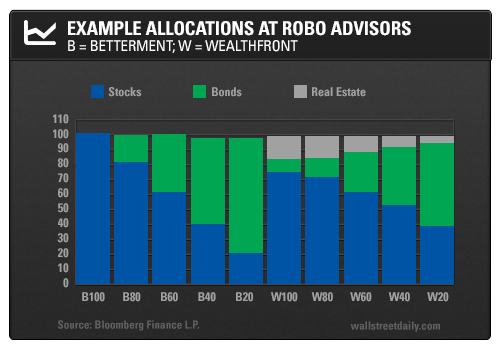The Brexit has sent many investors into panic mode.
Even the pioneer in the world of automated investing – Betterment LLC – slipped into shock, resulting in some unwanted publicity.
On the morning of Friday, June 24, Betterment’s robo-advisors ceased working. They halted trades altogether, which resulted in some seriously negative reactions.
Further, Betterment made the call to hold trades without notifying its retail clients, although it did let its institutional clients know of the standstill.
Additionally, Betterment does not permit any trading in the first and last half hour of the trading day – a fact that is disclosed to all clients.
This bold move by Betterment was big news in the financial industry.
Betterment is not a minor player in the investment field. In fact, it is the largest independent robo-advisor, managing $4.8 billion for over 160,000 clients. And it is the fastest growing registered investment advisor, having increased its asset base by triple digits in 2015.
So, Why the Halt?
In a statement made in the aftermath of the halt, Betterment said: “As our team monitored this [Brexit] market activity overnight, it became apparent that the U.S. market open would be extremely volatile – in other words, a poor environment for long-term investors.”
To his credit, Betterment founder and CEO Jon Stein appeared on CNBC’s Fast Money and reiterated that, “It was a good decision.”
Nonetheless, he took a lot of heat from traders on Fast Money.
During a testy exchange, Tim Seymour of Trigem Asset Management pointed out that market conditions were much worse at the start of the year than during and right after the Brexit. And yet, Betterment did not halt trading then.
Despite some valid points having been raised, Stein and the CNBC panel simply talked past one another with nothing resolved in-between.
The Betterment Market Timer
One concept stands out, however: Betterment is, in effect, a market-timer.
It will decide when it’s a good time for its clients to take action with their own money – and that’s a very slippery slope.
Let’s say some bad news comes down the pipeline and it’s looking like the market will open down 500 points. Betterment halts trading to avoid a mess.
But instead of a mere 500-point drop, the market finishes down 2,000 points. And it drops another 1,000 points the next day.
Will Betterment keep its clients locked into a collapsing market? It may take years to recover from such a loss and could put many customers in a state of financial ruin that they are simply unable to pry from the hands of a lifeless robot.
Instead, clients should be able to decide when and what to do with their money, even if they opt to entrust it to a robo-advising investment firm.
Another point, not brought up by CNBC, is that Betterment showed its bull market bias.
Clients were told that they were being protected from making the foolish decision to sell in a big down-market. Fair enough.
But it should do the same then in a big up-market, right?
Let’s say the market looks to open up 500 points. Shouldn’t Betterment then halt trading to stop clients from making a hasty buy decision?
Large upside days are not the time to buy in a market that has gone broadly sideways since late 2014. Clients buying on such days will lose money. This is not good for long-term investors.
Poor Allocation
Another thing that is not good for long-term investors is the 100% use by robo-advisors – including Betterment – of index funds.
These funds were fine when central banks first started flooding asset markets with liquidity. But now, the liquidity effects are diminishing rapidly.
Just look at the Vanguard S&P 500 ETF (NYSE:VOO), which has done nothing for about 20 months. Many other indices have flat-lined or worse.
Yet, robo-advisors have their clients loaded to the gills with these investments – especially for those with higher risk tolerance – as shown below:

I’ve been in the investment business since the 1980s and I can tell readers, with certainty, that these allocations are too heavy into stocks under current conditions.
Not to mention the fact that all of this money is invested in index funds and I wouldn’t want to be around when the you-know-what hits the fan.
Bottom line – there are smarter ways to invest than with robo-advising firms like Betterment. Simply put: Investors can do better than Betterment.
